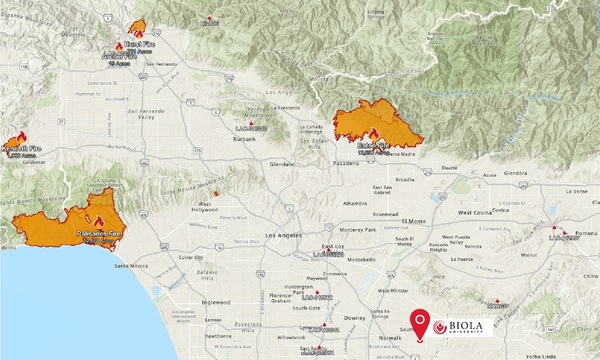Faced with shrinking budgets and a steady stream of negative news reports, California’s public school system is generally understood to be heading in the wrong direction. But many of the people who hold a negative outlook for public schools aren’t getting the full story, a panel of experts said at a recent event hosted by Biola University’s School of Education.
“We are currently engaged in an epic battle of the future of public education,” former California Secretary of Education Glen Thomas said in a keynote address at Biola University’s education symposium on April 7, 2011.
Inside a full auditorium, Thomas addressed the current realities and challenges teachers face, along with some of the ways teachers can navigate those challenges.
Presenting four main challenges the education system faces — budget cuts, legislative hurdles, an uninformed citizenry and negative coverage from media — Thomas, a Biola alumnus, dissected each challenge and ultimately expressed optimism for the future of public education in California.
As an example of the dysfunction in government and spending, Thomas compared the costs of housing a prisoner with the amount spent to educate a California public school student — four times as much. However, he said that many schools have made adjustments that may be beneficial for the future.
Thomas also noted that the United States is not as far behind in reading and testing as some studies have portrayed, stating that tests other countries have done are often localized in one area, rather than reviewing the entire nation. In California, academic achievement is up, said Thomas, stating that mathematics and language arts scores have consistently risen over the last 12 years.
“We have doubled the number of African American students in Advanced Placement classes, [and] the Hispanic population continues to go up in achievement, particularly in elementary. Is that good enough?,” he asked. “No. We have a lot of heavy lifting to do and a lot more work, but it is not as if we are failing.”
Thomas also encouraged greater parent involvement, stating that there needs to be a renaissance for family and what it means to be a parent. Teachers should assist in this calling, communicating to parents what their students are learning and parents need to be receptive to that, encouraging and helping their students with homework.
After his address, Thomas joined a panel discussion with Al Mijares, vice president of the Western Region of the College Board; Ruth Perez, superintendent of the Norwalk-La Mirada School District; and Joe Gillentine, superintendent of East Whittier City School District.
The panel discussed current legislation, the economic climate and its effect on K-12 and teacher education, and the role of Christian educators in promoting ethical practices in the public arena.
Approximately 400 educators, students and community members attended the event.
Cassidy Keating, a fifth grade teacher at Kwis Elementary School in Hacienda Heights, said she left the symposium encouraged with a greater understanding of the current state of education in California.
“It was refreshing to be amongst such highly esteemed Christian educators in a time when the education system has been portrayed in such a negative light,” said Keating. “Glen Thomas provided encouragement in that we are continuing to improve student achievement across the board and that the success is due to dedicated faithful teachers.”
Thomas and the other panelists discussed the advantage a Christian educator has in understanding the full depth of Christ’s grace and love when interacting with students. Keating also appreciated the emphasis on the role a Christian educator especially has in a classroom every day.
“As Christians we have potential to have such an impact on students and to show them Christ’s love, compassion and mercy,” she said. “Part of our role as Christian educators is to demonstrate integrity and faith and stand in our principles amongst the turmoil.”
Written by Jenna Bartlo, Media Relations Coordinator. Jenna can be reached at (562) 777-4061 or through email at jenna.l.bartlo@biola.edu.
 Biola University
Biola University
.jpeg)
.jpg)
_(1).jpg)